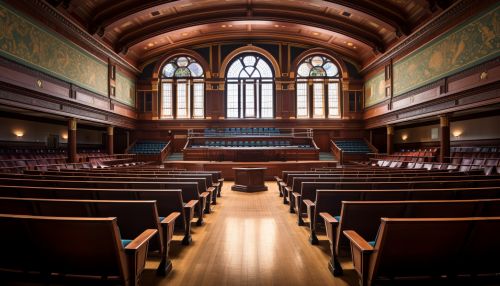Robert Nozick
Early Life and Education
Robert Nozick was born on November 16, 1938, in Brooklyn, New York, to a Russian Jewish immigrant family. His parents were Samuel Nozick, a businessman, and Sophie Cohen Nozick, a homemaker. He was raised in a relatively poor neighborhood and attended the local public schools.


Nozick showed an early interest in philosophy and intellectual pursuits. He attended Columbia University, where he received his Bachelor of Arts in Philosophy in 1959. He then went on to pursue his graduate studies at Princeton University, earning his Ph.D. in Philosophy in 1963. His doctoral dissertation, titled "Decision-Making Procedures, Logical Formalism, and the Concept of a Person," was supervised by Carl Hempel, a prominent philosopher of science.
Academic Career
Nozick began his academic career at Princeton, where he taught for a short period before moving to Harvard University in 1965. At Harvard, he became a full professor in 1969 and remained there for the rest of his career. He was a prominent figure in the philosophy department, known for his rigorous teaching style and his commitment to exploring complex philosophical issues.


In addition to his teaching duties, Nozick was a prolific writer. He published numerous articles and books on a wide range of philosophical topics, including political philosophy, epistemology, and metaphysics. His work was characterized by its originality, depth, and willingness to challenge established ideas.
Philosophical Views
Nozick's philosophical views were wide-ranging and often controversial. He is perhaps best known for his work in political philosophy, particularly his defense of libertarianism in his book "Anarchy, State, and Utopia" (1974). In this work, Nozick argued against the concept of a redistributive state, asserting that individuals have a right to their property that the state cannot infringe upon.


In addition to his political philosophy, Nozick made significant contributions to other areas of philosophy. In epistemology, he developed a theory of knowledge known as the "tracking theory," which posits that knowledge is a matter of tracking the truth. In metaphysics, he proposed a theory of personal identity based on the concept of the "closest continuer."
Later Life and Legacy
Nozick continued to teach and write until his death on January 23, 2002. His later work focused on issues of meaning and value, culminating in his final book, "Invariances: The Structure of the Objective World" (2001).


Nozick's legacy in philosophy is significant. His work continues to be widely read and discussed, and his ideas have influenced a range of fields, from political science to cognitive science. Despite the controversy surrounding some of his views, Nozick is widely recognized as one of the most important philosophers of the 20th century.
